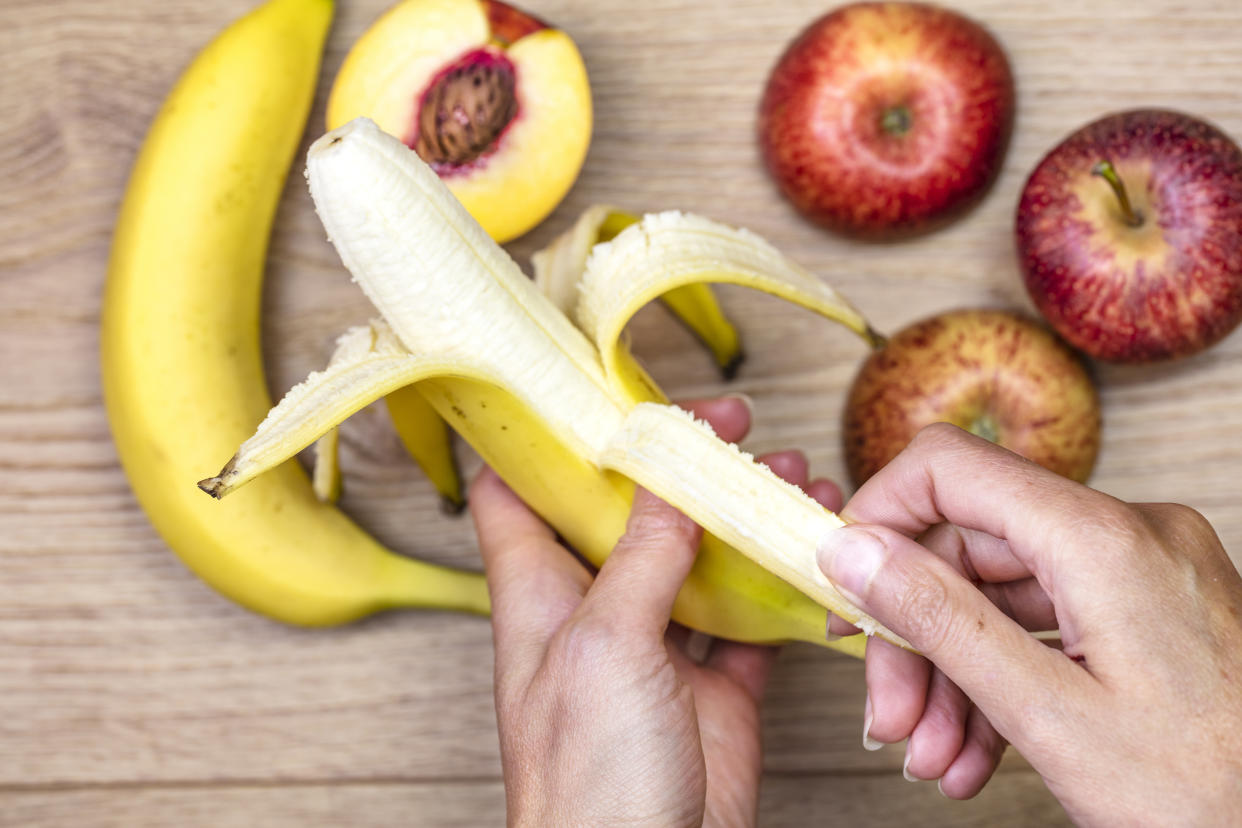Eating fruit can lower risk of depression later in life, study finds

Eating fruit could reduce the risk of depression later in life, a new study has found.
The large-scale study looked at data from more than 13,000 participants across 20 years, and found that a higher consumption of fruit could lower the risk of age-related depression by at least 21%.
Study authors found that eating at least three servings of fruit per day in middle age can decrease the likelihood of depression compared to eating one serving or less.
These findings come after doctors globally have noticed an increased prevalence in depressive symptoms among older adults, stating that this could be related to underlying neurodegenerative changes in the brain associated with ageing.
This new study, published in the Journal of Nutrition, Health and Ageing, was conducted by the Yong Loo Lin School of Medicine at the National University of Singapore, and looked at 14 fruits commonly eaten in Singapore.
It determined that oranges, tangerines, bananas, papayas, watermelons, apples, and honey melon were the fruits most associated with a reduced risk of depression.

They said this was due to the high levels of antioxidants and anti-inflammatory micronutrients in fruits – such as vitamin C, carotenoids and flavonoids – which have been shown to reduce oxidative stress and inhibit inflammatory processes in the body may affect the development of depression.
Consumption of vegetables, however, was found to have no association with the likelihood of depressive symptoms.
“Our study underscores the importance of fruit consumption as a preventive measure against ageing-related depression,” study author Professor Koh Woon Puay, of NUS Medicine, said.
"In our study population, participants who had at least three servings of fruits a day, compared to those with less than one serving a day, were able to reduce the likelihood of ageing-related depression significantly by at least 21%.
"This can be achieved by eating one to two servings of fruits after every meal. We did not see any difference in our results between fruits with high and low glycemic index. Hence, for those with diabetes, they can choose fruits with low glycemic index that will not raise blood sugars as much as those with high index.”
Participants were aged 51 on average during the initial stages of the study, and 73 when symptoms of depression were tested for.

After adjusting for factors including medical history, smoking status, level of physical activity and sleep duration, the researchers found that higher consumption of fruits, but not vegetables, was associated with lower odds of depressive symptoms.
“Our study aimed to examine the relationship of midlife consumption of fruits and vegetables with the risk of depressive symptoms in late life,” Koh added.
"Although other studies have also examined the associations of fruits and vegetables with risk of depression, there are inconsistencies in the results. These findings suggest that promoting fruit consumption for individuals in mid adulthood, typically defined as ages 40 to 65, could yield long-term benefits for their mental well-being at late adulthood beyond 65."
The research team is now looking into the association of other modifiable behaviours – such as sleep duration, smoking and other dietary factors – with the mental health of older adults.
Additional reporting by SWNS.
Health: Read more
Tiktok is obsessed with moringa, but can it really boost your gut health? (Yahoo Life UK, 3-min read)
The one key nutrient to improve your gut health—here's how to get more of it (Yahoo Life UK, 4-min read)
Oats could mimic effects of weight loss drugs, new study finds (Yahoo Life UK, 3-min read)


